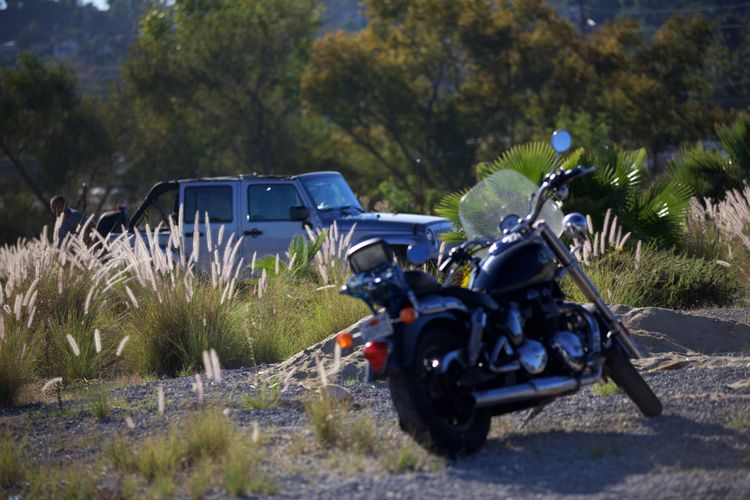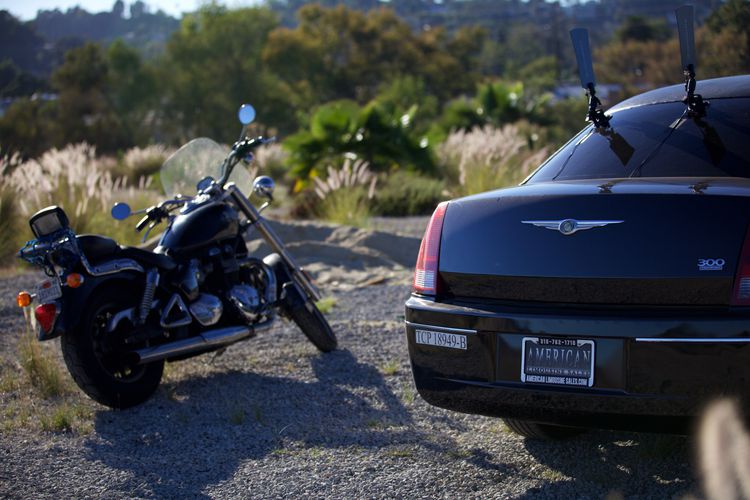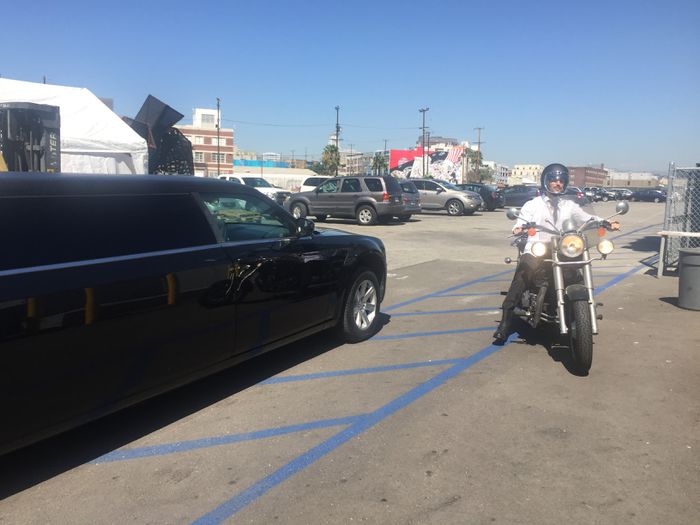-
Chapter 2 CrashRed Route - An intersection in Boyle Heights
Lucha and Jamson exchange information in the aftermath of their accident.
-
Chapter 4 Lucha's Quinceañera SongRed Route - Mariachi Plaza, Boyle Heights
Lucha remembers the day she left her childhood behind.
-
Chapter 6 Jameson PortraitYellow Route - The 2nd Street Tunnel, Downtown Los Angeles
Jameson contemplates the multifaceted nature of his personality.
-
Chapter 7 The ReunionYellow Route - A Rehearsal Studio in the Arts District
Lucha and Jameson connect at Lucha's performance of Orpheus and Eurydice.
-
Chapter 8 First KissRed Route - Hollenbeck Park, East Los Angeles
Romance blooms on Lucha and Jameson's first date.
-
Chapter 9 Angel's PointGreen Route - Angel's Point, Elysian Park
Lucha and Jameson share a passionate physical experience.
-
Chapter 11 The Floating NebulaGreen Route - The Corn Fields, Los Angeles State Historic Park, Chinatown
The metaphysical peak in Lucha and Jameson's love.
-
Chapter 12 WeddingYellow Route - City Hall, Downtown Los Angeles
On their wedding day, Lucha gives Jameson a fateful gift.
-
Chapter 14 The Phone Call, Part 1Red Route - Traversing between the Arts District and Boyle Heights
Lucha receives a mysterious phone call from a voice she seems to recognize.
-
Chapter 17 Orlando's FairwellRed Route - Evergreen Cemetery
Before leaving Los Angeles, Orlando pays his last respects to his wife.
-
Chapter 18 Interlude (Car Wash)Green Route - AirStream Trailer, Elysian Park
Reflect on the impact of a location's geography on a person's psyche.
-
Chapter 24 The Red NotebookRed Route - Utter darkness
In a state of darkness, Lucha is haunted by Jameson's red notebook.
-
Chapter 25 The Other WomanYellow Route - The Bradbury Building, Downtown Los Angeles
Still submerged in darkness, Lucha dreams of Jameson's infidelity.
-
Chapter 26 HadesGreen Route - Bowtie Parcel, Los Angeles River
Lucha descends to the underworld in search of Jameson.
-
Chapter 28 Lucha and Orlando in LoveYellow Route - Historic Core, Downtown Los Angeles
After years apart, Lucha and Orlando reunite in Los Angeles.
-
Chapter 33 Farewell From the Roof TopsRed Route - Rooftops, Toy Factory Lofts, Biscuit Lofts, Ito Building Tower, Arts District
Lucha makes peace with Jameson's disappearance.

Passengers
Man in Car: Peter Howard
Recording: Lewis Pesacov, Garret Ray, Corey Fogel, Jonah Levy, Alison Bjorkedal, Andrew McIntosh
Music by Lewis Pesacov
Text by Elizabeth Cline and Yuval Sharon
Director’s Notes:
“This chapter showed Jameson from outside – as seen from inside a limo on his motorcycle. He gets into a conversation with a man in the limousine, which begins as typical road rage. Before you know it, the conversation becomes metaphysical and represents two entirely different views of the city and the streets. Jameson rode with an ear-piece and microphone, and the audience heard him through the car speakers thanks to Sennheiser antennae mounted to the car.
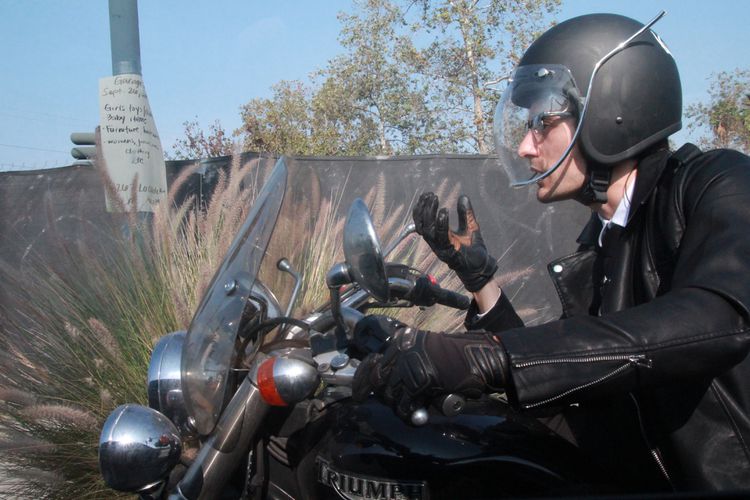
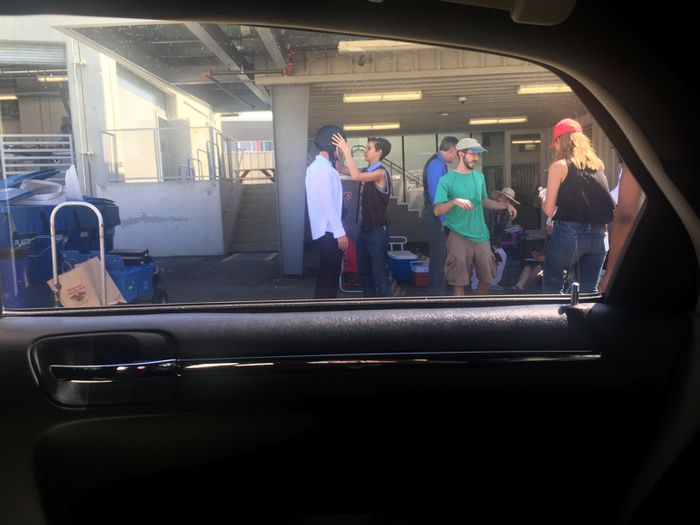
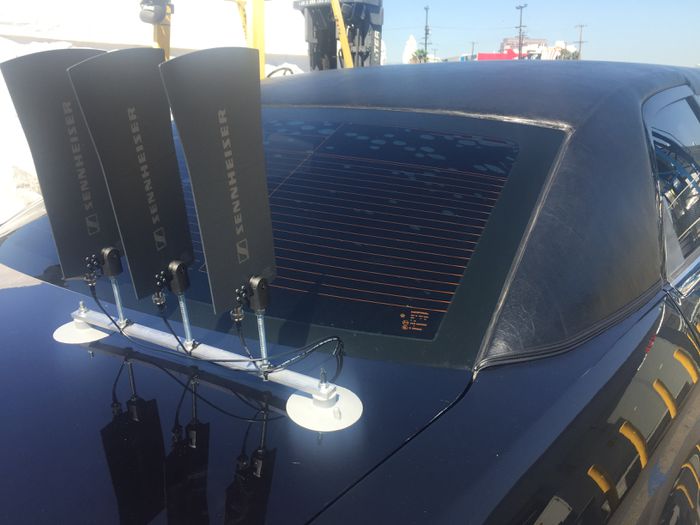
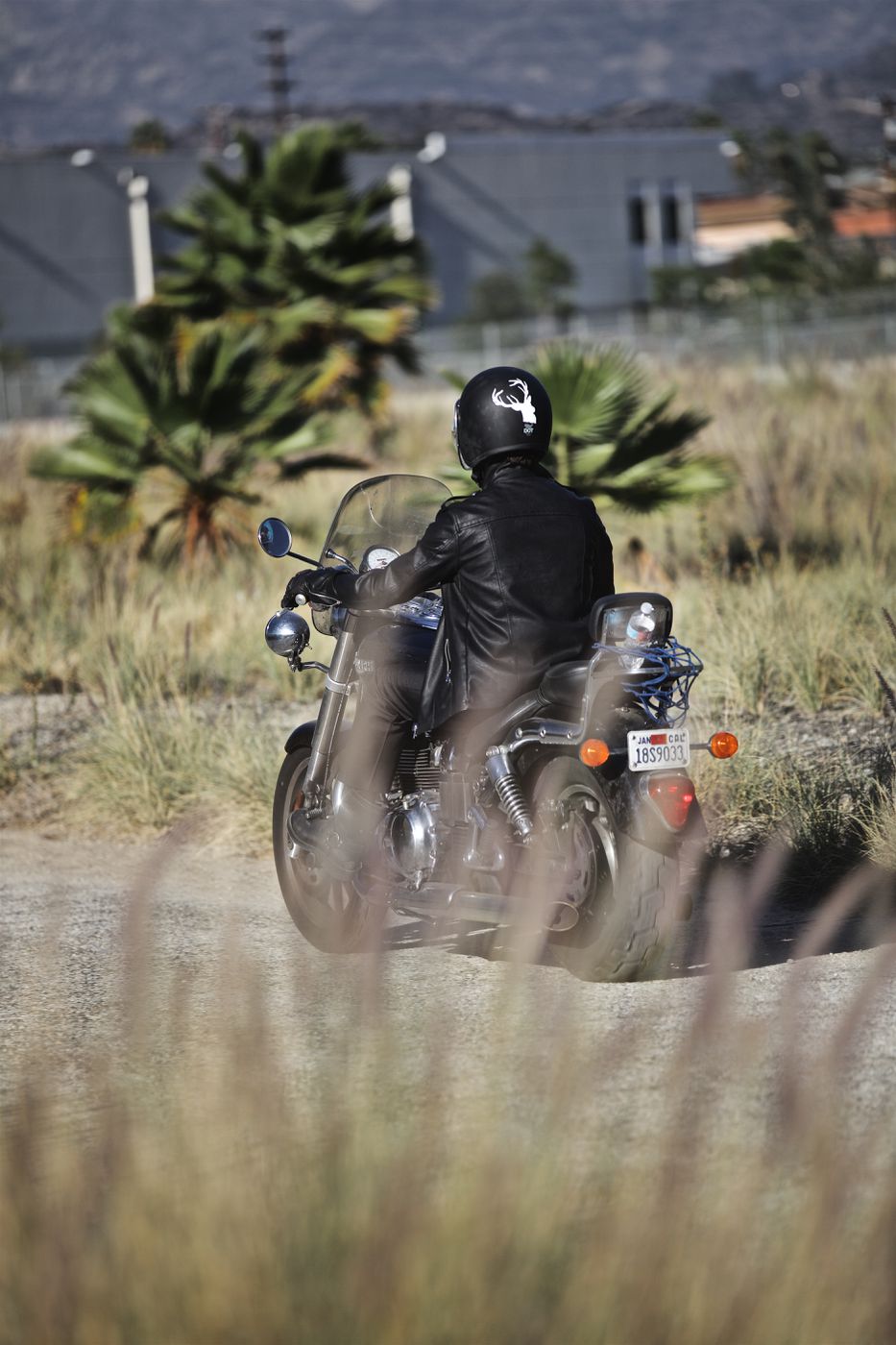
“Hell is the place where nothing connects with nothing.”
Jameson gives voice in this chapter to those who consider LA alienating and the detachment of driving impossibly lonely. I think all of us, even those of us who love Los Angeles, struggle with that potential experience of the city. ‘Hell is the place where nothing connects with nothing,’ Jameson quotes; Los Angeles can appear that way to some who feel lost in the city’s sprawl and its decentralized organization. In this way, too, the chapter brought Hell out of the realm of the Orpheus myth and directly into the reality of the characters. The man in the limo responds to Jameson’s nihilism with a quote from Milton: ‘The mind may make a Heaven of Hell, a Hell of Heaven.’ In other words, making Los Angeles a Hell is just as much a question of our perception as it is a judgment of reality.
“At the very end Jameson throws the man in the limo the red notebook. The man in the limo starts reading, puzzled by the fragments of thoughts that make up Jameson’s desperate musings. The ‘book toss’ was so convincingly done by Stephen and Peter that most people believed it was real (spoiler: it wasn’t).
This was one of the last chapters written for Hopscotch, and it came about when I realized that many of the chapters brought us into a close psychological proximity to the characters, but there were very few of them where the car was the barrier to our closeness. This whole scene became about a debate on whether cars connect us or isolate us. Jameson speaks to the streets as a chaotic jumble, the man in the limo considering the streets pathways of connection. I think both are right.”
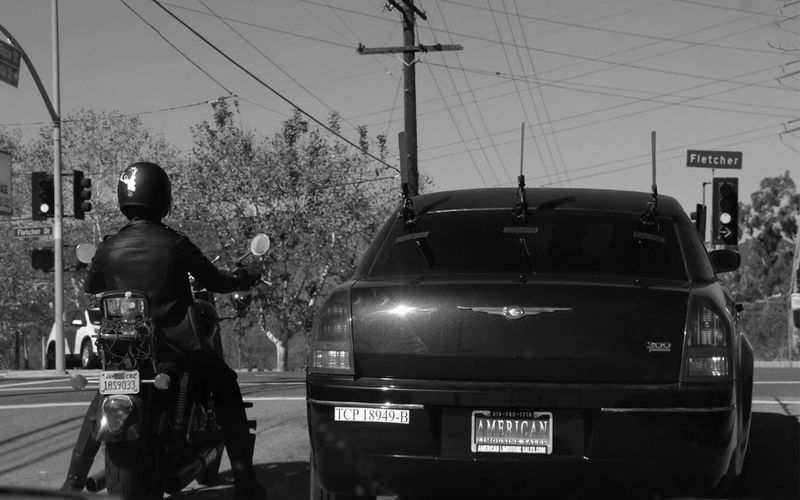
Buckle Up
California has not had a day without a traffic fatality since September 12, 2000.
– Yuval Sharon
